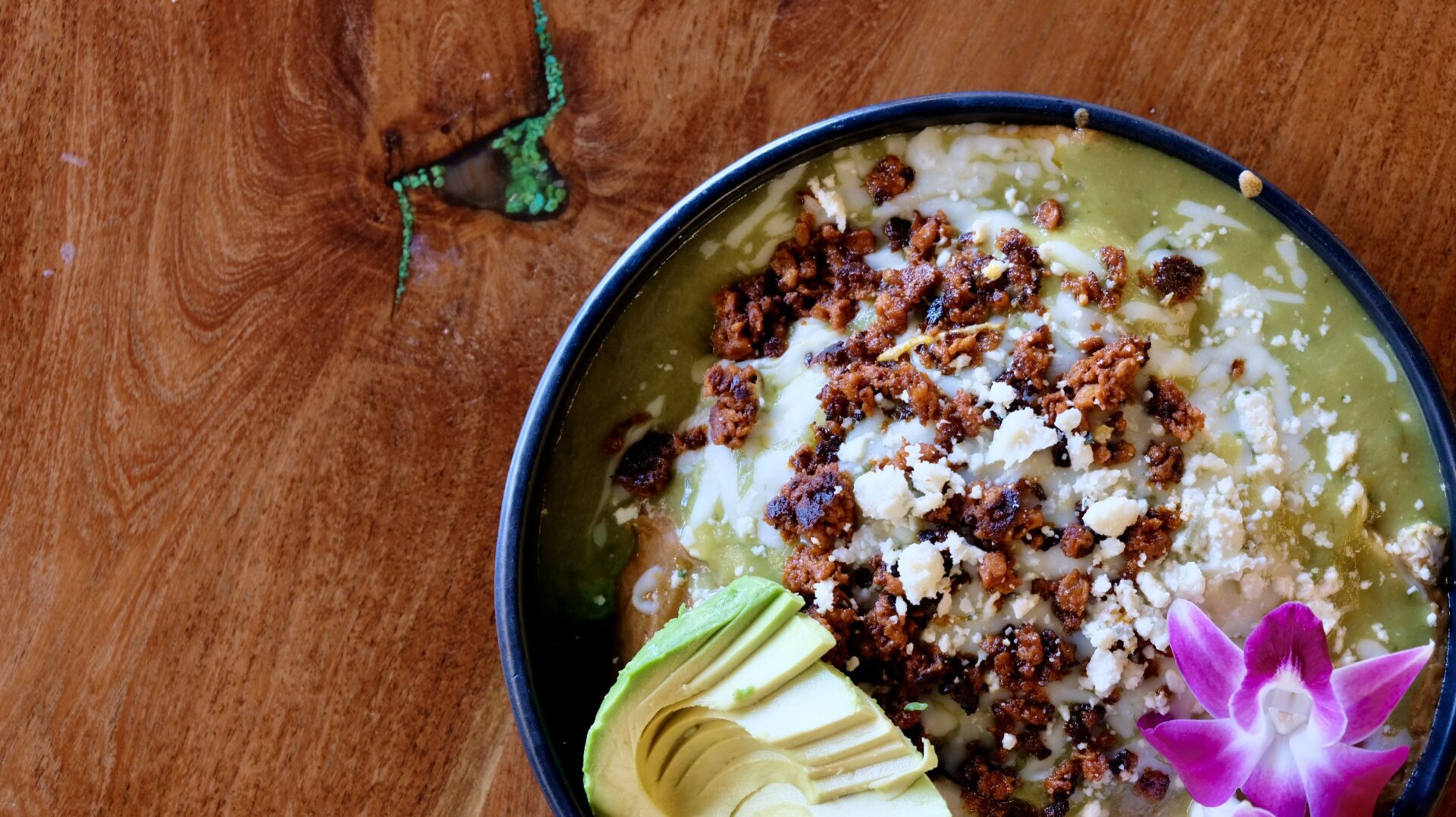
Have you ever wondered how Tucson’s top restaurants source the freshest local ingredients?
“These are the first figs of the season,” Erik Stanford, the founder of Pivot Produce, said to me as I walked into Pivot’s southside distribution center. The Black Mission figs were grown by Antonio Torres in Three Points, Arizona, just 30 minutes southwest of Tucson.
I scanned the shelves to see what else Erik had that day: kale from Whipstone Farm in Paulden, eggplant from Pinnacle Farms near Phoenix, eggs from Winkelman, and dates from Urias Farm in Somerton. Chiltepin, harvested earlier in the season, was stored in the freezer to be delivered to EXO year-round for their Chiltepin Cold Brew.
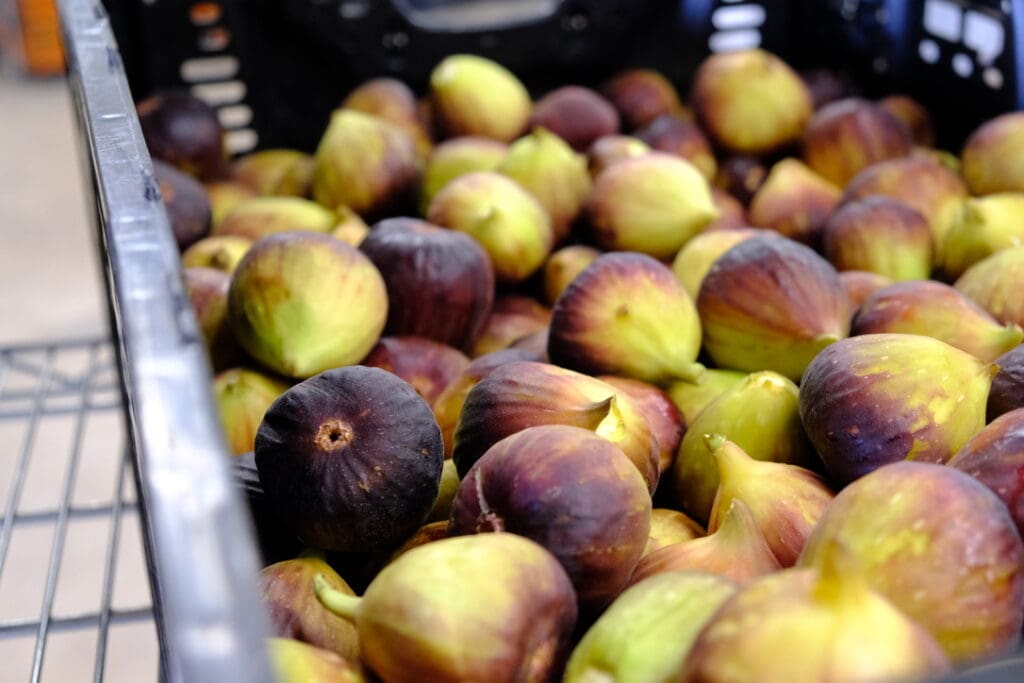
It’s pretty inconvenient for a restaurant that wants to feature locally-sourced ingredients to acquire those ingredients directly from farmers. From calling each farmer to find out what they have, to placing multiple orders, cutting multiple checks, and accepting multiple deliveries, it just adds too much complexity.
That’s where Pivot Produce comes in.
Erik set up Pivot when he was a cook at 5 Points Market and Restaurant. 5 Points procures as much as possible locally, which is reflected in their ever-changing dinner menu and amazing rotating pastries.
With the help of 5 Points owners Jasper Ludwig and Brian Haskins, Erik launched Pivot Produce in 2015 with two goals in mind: to help chefs and restaurants more easily connect with local growers and purveyors, and to help those growers spend more time on the farm instead of worrying about selling their produce.
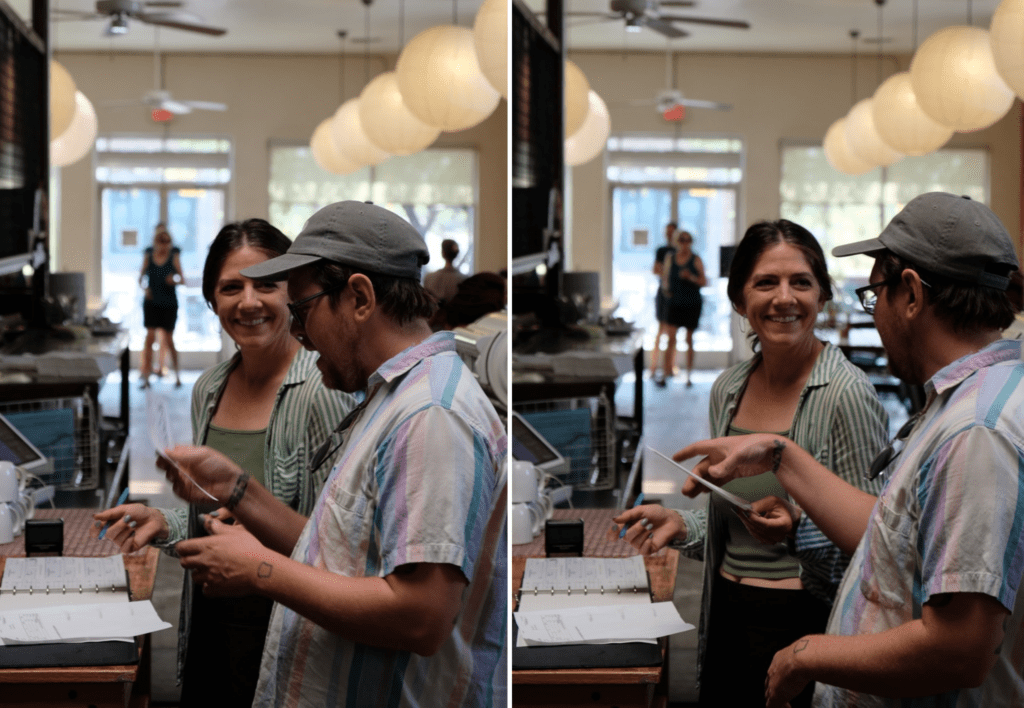
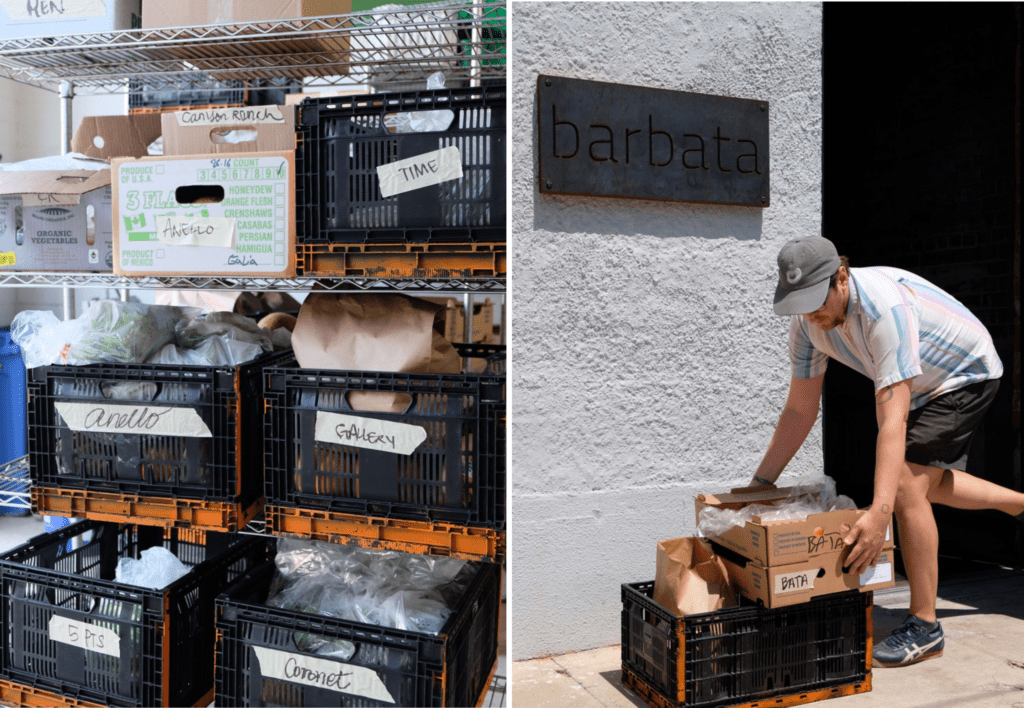
In Pivot’s first five years of operations, it focused on farm-to-restaurant sales. Fruits and vegetables came in Monday through Wednesday and were always completely gone by Friday. Soon after, Pivot started delivering to The Food Conspiracy Co-op and then bigger institutions.

Pivot’s model is different from other food distributors in another key way: prices. Rather than being bound by Wall Street to maximize profit, Pivot keeps its markups as low as possible, averaging just 20%, or as low as 0% on some products. This means that 80% of the money Pivot collects selling its produce goes straight back to farmers. In contrast, large public company food distributors like Sysco, driven by the need to maximize profit, often push suppliers to sell at lower prices, resulting in only 10% of the sales revenue going back to the farmers.
Pivot’s model also allows them to give a lot of food away for free. Pivot delivers produce weekly to the Pascua Yaqui Tribe and to TUSD, providing both seniors and youth with access to high-quality, highly nutritious organic fruits and vegetables. Pivot even offers sliding scale prices to those who may not be able to afford quality produce. As of July 2024, over 25% of customers using Pivot Direct—Pivot’s direct-to-consumer arm—are on a sliding pay scale.
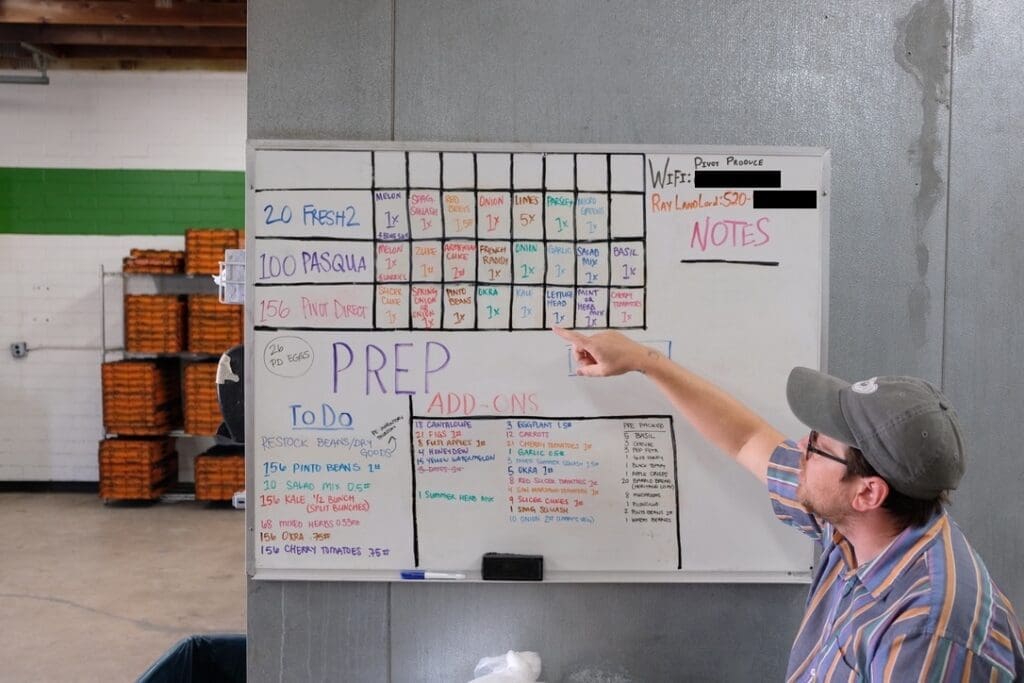
This is remarkable considering Pivot’s commitment to quality, which usually fetches a premium in the market.
That focus on quality is great for local farmers like Larry’s Veggies in Marana. While I was at Pivot’s warehouse, Larry’s wife, Eunice, brought a truckload of fresh produce in from the farm. Eunice told me they love selling to Pivot because Pivot lets growers like her and her husband set the prices.
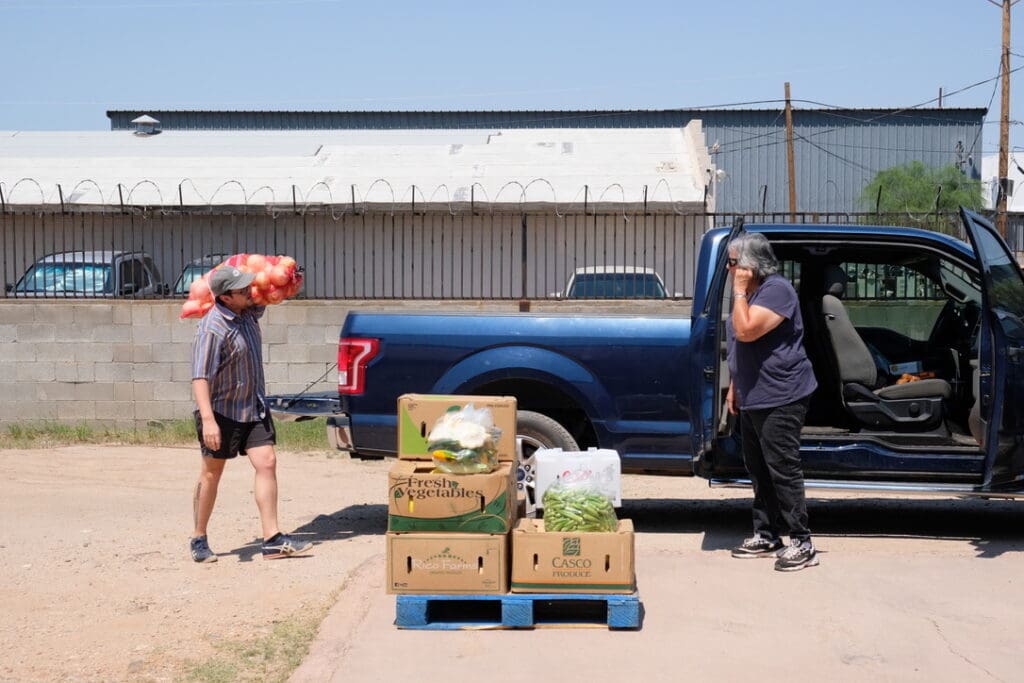
Growing food on a smaller scale, especially in the desert, is hard. Selling to larger distributors who dictate unreasonably low prices and require minimum quantities isn’t an option for many local growers. If small farmers like Larry’s Veggies can’t find enough of a market to sell to at a price that works for them, they tend to disappear.
What’s lost when we don’t have local produce? For starters, variety. Local chefs and diners love variety. If every restaurant in Tucson served the same thing all year long, something intangible but important about Tucson’s culture and culinary scene would be lost. Quality would also be lost. Fruits and vegetables grown locally tend to have a higher nutritional density due to the shorter time between harvest and consumption. Fresh is better. Organic is also better, not just because it leads to higher nutrient levels, but also because organic farming emphasizes soil health, which is better for the environment.
There’s also a higher environmental impact when you buy stuff from far away. That stuff has to be shipped here, emitting greenhouse gasses. It’s also where most of the food waste happens. Some crops are more fragile than others, like figs. I did a ride-along with Erik one morning. When we were delivering fresh figs to ANELLO, some got crushed. That was just during a 10-minute drive. Imagine how much food is lost when it’s shipped around the world.
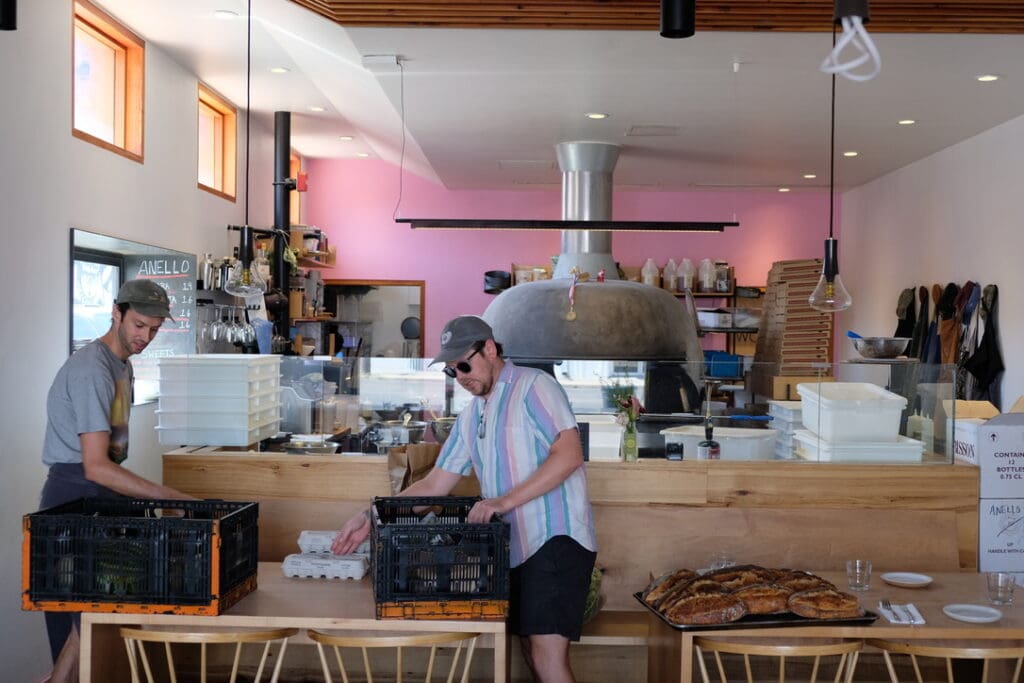
When I asked Erik about his plans for the future of Pivot, I was surprised to learn that he wasn’t focused on growth. Instead, he’s turning his attention to building a statewide network of other small distributors like Pivot. This will allow them to move produce from one part of the state to buyers in other parts of the state, increasing the size and reliability of markets for farmers, allowing them to grow more, sell more, and thrive.
Erik is also in the process of converting Pivot Produce into a nonprofit. As a nonprofit, Pivot can pursue new grants to help them keep their margins as low as possible, launch a chef education program, and ultimately buy produce from more farmers and supply more restaurants and institutions.
Impact > profit.
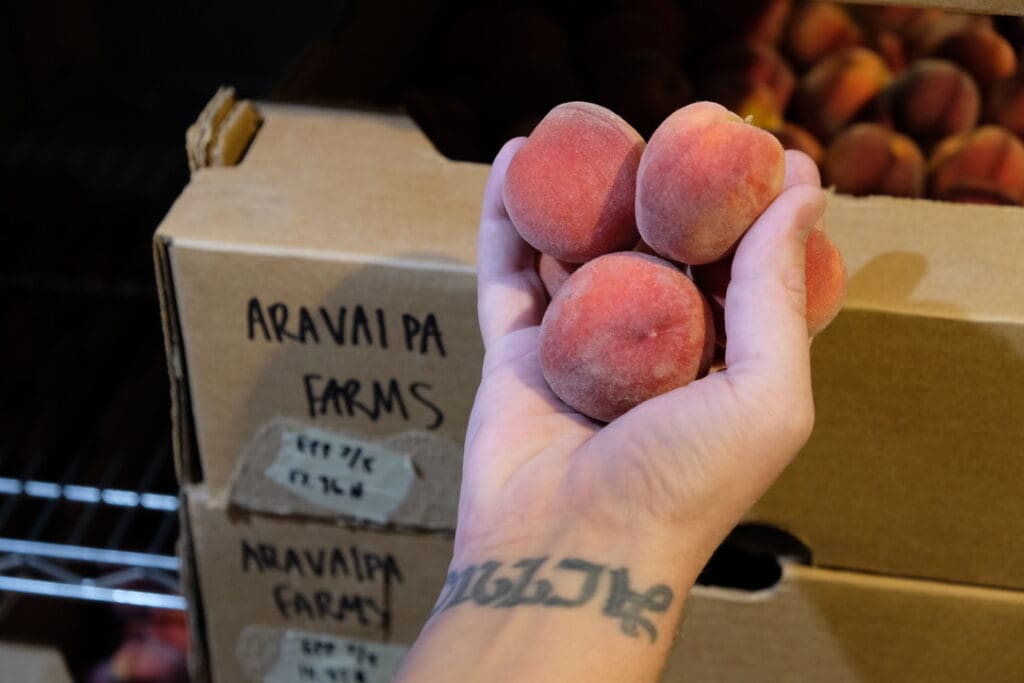
I asked Erik what he wanted everyone to know about Pivot. “That we’re multi-faceted,” he said. “We don’t just sell to restaurants. Today, our restaurant sales account for just 25% of our revenue. The rest is farm-to-institution or Pivot Direct.”
Pivot’s “farm-to-institution” program is exactly what it sounds like. The Community Food Bank of Arizona helped Pivot secure a USDA grant to get it started, and now they sell to large organizations like TUSD. These sales are great for Pivot and for local farmers because they’ve been able to get TUSD and other organizations to commit to a meaningful purchase quantity a year ahead of time.
Pivot Direct is their direct-to-consumer program. It’s essentially a CSA program, but with a collective of farmers rather than just one. It’s a wonderful program for foodies like myself, who prefer to support local but can’t always find time to visit several places to get what they need.
Every week (monthly and bi-monthly options available, too), I pay about $40 for a large bag of fresh, organic, locally-grown fruits and vegetables from a variety of farmers delivered to my doorstep. Sometimes, I hop into Pivot’s online portal and add items to my delivery, like eggs, honey, mushrooms, beans, bread, and more. All local. All delicious.
Sign up for Pivot Direct at Pivot Produce.
Love Tucson food? So do we. That’s why our stories are free to read — and focused on the chefs, farmers, and restaurants that make Tucson so delicious.
👉 Get exclusive perks & support local with the Foodie Insiders Club and learn how to eat local year-round.